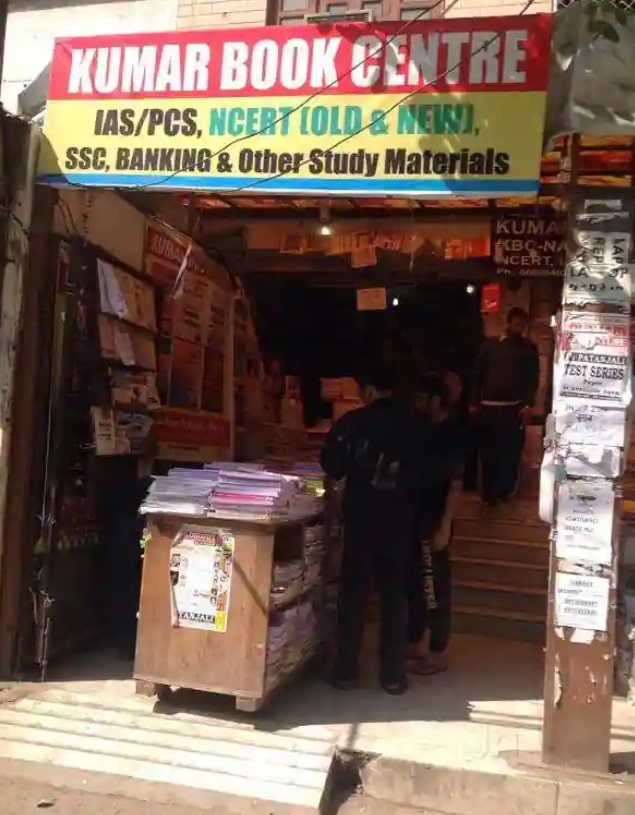If you were to search for UPSC coaching centers on the internet, you might find yourself spoilt for choice. There exist all kinds of coaching institutes, and the fees they charge varies according to how many successful aspirants have been produced over the years. While the coaching centre model might work for some, for others, it is a waste of resources – both time and money.
But IAS (Indian Administrative Service) officer Tapasya Parihar is a shining example of what can be achieved with consistency and diligent studying alone. Without any external coaching, she secured an AIR (All-India Rank) of 23 in the CSE (Civil Service Exam) in 2017.
A resident of Narsinghpur in Madhya Pradesh, Tapasya completed her education and moved to Pune, where she pursued a law degree. While the idea of appearing for the UPSC CSE was sown early on in Tapasya’s mind by her uncle, it was only when she was in Pune that she truly considered it. “It was my uncle’s dream to appear for the CSE and be part of the administration. He couldn’t achieve it, but somehow that stuck with me,” Tapasya tells The Better India.
While pursuing her law degree, Tapasya was part of the legal aid cell, and as the student coordinator, got to see first-hand how many problems that were brought to the cell’s attention were administrative in nature. “I felt that many of these issues could be addressed and solved even before they were given time to fester and become legal issues,” she adds. This realisation was the push that made her look at the CSE seriously.
So just after her five-year law course ended, in 2015, Tapasya began her preparation. “I reached Delhi and enrolled in a coaching institute in August 2015, armed with the information that my uncle, who had prepared for the services almost 15 years ago, had given me,” she recalls. While joining a coaching institute was a given, Tapasya’s family did not feel comfortable with her moving to Delhi and living by herself. “It was a struggle and took quite a bit of convincing, but it worked in the end,” she says.
‘Finding my voice amid all the noise’

“I went with the flow. So I paid up for the coaching and found myself seated for the first lesson,” Tapasya says. But she notes that she soon realised that coaching classes were nothing but tiny rooms in which all aspirants did was take copious amounts of notes. “I cannot fault the coaching centres, because they have been doing this forever and producing results. For me, this format did not work at all. I found it difficult to focus with 300 other aspirants in the same class,” she says.
The shift from Pune to Delhi in itself was a change. This, coupled with the classes and the manner in which they were conducted, seemed rather overwhelming to Tapasya. During her first attempt in 2016, she realised where she stood vis-à-vis all the preparation she had done. “When I sat in the examination hall with the paper in front of me, it struck me that I had very superficial knowledge of all the topics. What the UPSC demands of the aspirants, however, is an in-depth understanding of the topics they ascribe,” she says.
Not clearing the first time was very disappointing for Tapasya. She says, “Being alone in Delhi, away from the family, and not being able to clear the CSE was very disheartening. I had not just my own expectations to meet, but also those of my family members, who had seen me do well in my class 12 and college examinations. This failure came as a shock to them.”
What helped Tapasya sail through this period were words of advice from her mother. She says, “Even though my mother is not very educated, she is extremely worldly. She’d often tell me not to attach too much importance to what people around me were saying, and asked me to always follow my heart. That advice has held me in good stead.” The failure in the first attempt served as a great launch pad for Tapasya, who used her shortcomings to prepare for the second attempt.
Preparation strategy for the second attempt

With the internet as her study guide, Tapasya set out on the course to self study. “I would watch various topper interviews and read articles on different strategies. With all the information available online, I prepared a book list and began,” she says. Tapasya started off with the basics; she began studying using NCERT textbooks and completed this set in a span of one and a half months. This helped strengthen the foundation. “I began my preparation in December 2016, six months before the prelims,” she notes.
Having tackled the NCERT syllabus earlier on in October 2016 gave her a much-needed boost. “I prepared a schedule for myself from December onwards and stuck to that through the six months,” she says. Working on some of the mistakes she made the first time around, Tapasya says that she spent ample time solving test papers, which helped her segregate her strong areas from weaker ones. “It allowed me to self assess, and I used the time thereafter to work on the weaker sections,” she says.
Tapasya also utilised the last month to revisit topics and revise the entire syllabus. “I would also use the test series papers as revision material, which helped further strengthen my hold on various topics,” she says. Tapasya says self-reliance helped her stay focussed and motivated. “In a classroom setting, one often puts the onus on the teacher, and that is a mistake. Aspirants must do their own research and study according to their strong points, over and above whatever is taught in class,” she says.
Tapasya’s tips for aspirants who are self studying
· Do not fear competition
“Despite there being so many aspirants appearing for the examination, the one thing you should stay away from is feeling the threat of competition. There will be moments of self-doubt, but the key is to continue to study and stay focussed on the end goal.”
· Do your own due diligence
“All the topper tips and coaching centres are to one side, as aspirants must take some time out to understand and plan their own strategy for the examination. While some pointers from toppers might be useful, this is an individual journey that each aspirant must embark on their own. Find books and resource material that you feel most comfortable using.”
· Making a plan and sticking to it is integral to self-study
“When preparing by yourself, it is important to draw up a schedule and try to stick to it. I had a broad plan in mind and as the examination month came closer, I started breaking up my goals into smaller, achievable units.”
Tapasya is currently posted as the Sub-Divisional Magistrate at Barwani district in Madhya Pradesh.
(Edited by Divya Sethu)
No comments:
Post a Comment